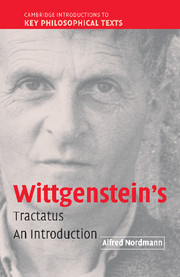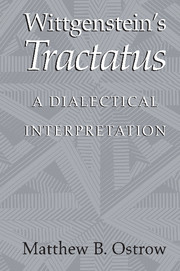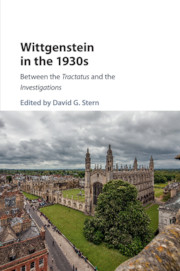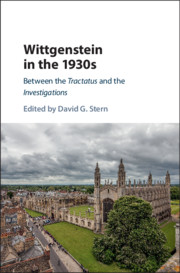Wittgenstein's Tractatus
Ludwig Wittgenstein's 'Tractatus Logico-Philosophicus' is one of the most important books of the twentieth century. It influenced philosophers and artists alike and continues to fascinate readers today. Alfred Nordmann's introduction considers both the philosophical and the literary aspects of the Tractatus and demonstrates how they are related. It also reveals how the work fits into Wittgenstein's philosophical development and the tradition of analytic philosophy, arguing strongly for the vigor and significance of that tradition.
- A critical guide to one of the basic texts of philosophy
- Shows how the literary and philosophical elements of the work interact
- Accessibly written for students
Reviews & endorsements
'This is an extraordinarily interesting, and in fact gripping, book on a famously enigmatic text. Nordmann's mastery of the philosophical backgrounds, extending back through both Anglophone and European philosophy, along with his deep knowledge of the Austrian culture behind the early Wittgenstein, puts him in a position to shed rare light on Wittgenstein's seemingly gnomic utterances. Put this all together and you have a striking elucidation of Wittgenstein on the limits of sense that richly rewards close reading.' Garry Hagberg, James H. Ottaway Professor of Philosophy and Aesthetics & Editor of 'Philosophy and Literature', Bard College, New York
'Rare and useful discussion is given of such important influences as the aphorist Georg Lichtenberg and the philosophically minded physicist Henrich Hertz, and in this context there is also a very welcome examination of Wittgenstein's highly unusual literary style.' The Times Higher Education Supplement
'… Nordmann's interpretation is a thoroughly provocative one …' Philosophical Investigations
Product details
September 2005Paperback
9780521616386
248 pages
216 × 140 × 13 mm
0.29kg
3 b/w illus. 11 tables
Available
Table of Contents
- Introduction: Wittgenstein's provocation
- 1. Critical philosophy
- 2. The argument
- 3. Thought experiments
- 4. Tense and mood
- 5. The senses of sense
- Conclusion: a sense of familiarity.





